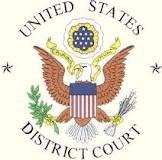Can I be prosecuted in federal court?

Yes, under a specific federal law called the Federal Juvenile Delinquency Act* juveniles may be charged in federal district court for a variety of offenses. The purpose of the Act is to provide juveniles an opportunity to engage in treatment and rehabilitation. It applies to persons under 21 who allegedly violated a federal law. It is a non-criminal process intended to keep the individual from the stigma of a criminal conviction.
If you are arrested for a federal offense and taken into custody, your legal rights will be read to you by the officer and your parents will be notified. You do have the right to remain silent and request a lawyer before speaking with the police. Once your parents are notified, speak with them about the incident. When a lawyer is appointed to represent you, your parents have no right to be present during your conversations with your lawyer. Nor can they make any decisions about the case or how it’s handled. The attorney-client privilege applies to you just as it does to adults in the criminal justice system.
 If you are found to be delinquent by the court, your sentencing (called “disposition”) is held shortly thereafter. Although you don’t have a right to a jury trial in federal court, you can appeal the court’s decision. The sentencing possibilities include continued detention until age 21 or the maximum allowed under the United States Sentencing Guidelines.** Under federal law, your records are sealed and only available to specific persons listed in the law (18 United States Code Sec. 5038).
If you are found to be delinquent by the court, your sentencing (called “disposition”) is held shortly thereafter. Although you don’t have a right to a jury trial in federal court, you can appeal the court’s decision. The sentencing possibilities include continued detention until age 21 or the maximum allowed under the United States Sentencing Guidelines.** Under federal law, your records are sealed and only available to specific persons listed in the law (18 United States Code Sec. 5038).
* 18 United States Code Secs. 5031 to 5042.
** 18 United States Code Sec. 5037; United States v. Juvenile, 347 F.3d 778 (Ninth Circuit Court of Appeals, 2003).


